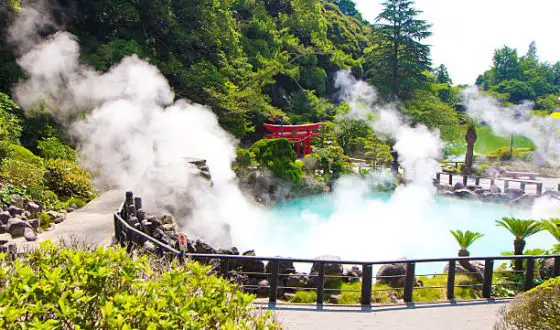Homestay In Japan: Ultimate Guide For Foreigners
There is a wide variety of accommodation choices available when visiting Japan. While travelers are looking for new ways to engage with local communities and delve into the heart of a country’s culture, homestay appears to be an excellent alternative to traditional types of accommodation. Is it scary to spend time with a family from another country, or will it be the most meaningful experience you can have?
For more amazing information about homestay in Japan, keep reading!
Everything to know about homestay in Japan
1. What’s Japanese homestay like?
Before we start, just make sure that you know What a homestay is in Japan. Japanese homestay is a type of accommodation in which the visitors stay in a local family for a fee. It could be long term (3 -6 months) or short term staying (days or weeks). Host families could be individual or single parents, with or without child, young or old. But usually, the family has members that study abroad or plan to do so and would be willing to open their house for a homestay.
Most host families live in big cities and close to points of interest( Tokyo, Osaka, Kyoto, Saitama, Chiba, Nagoya, Yokohama , Sapporo, Nara, Fukuoka, Hiroshima, Narita, etc). Additionally, there are also families that are located in the countryside (Miyazaki, Ehime, Hyogo, etc).
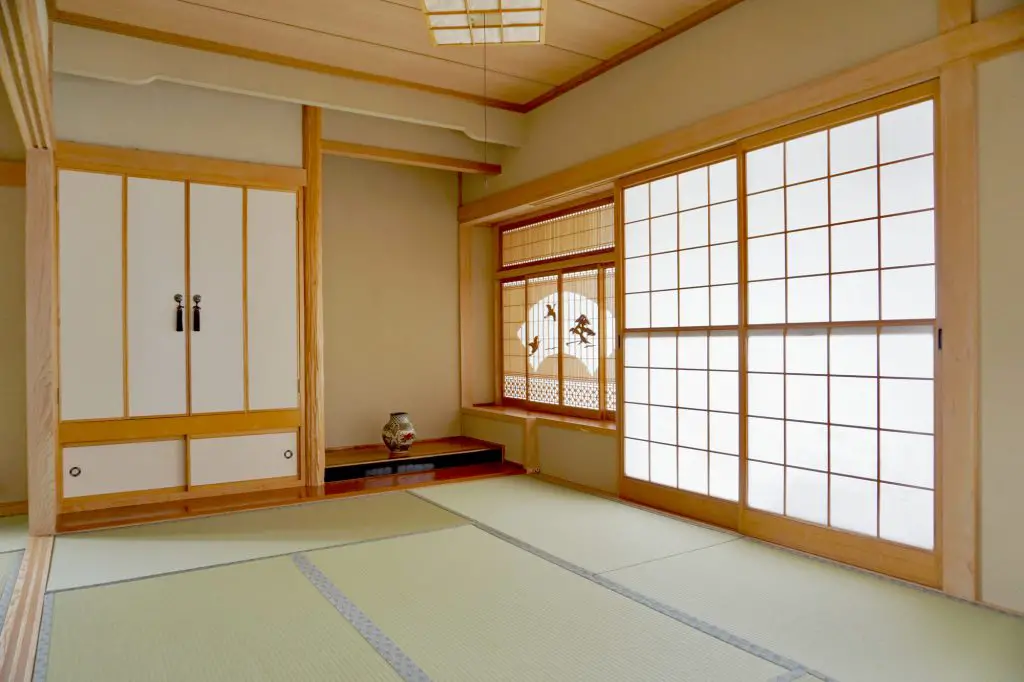
A typical Japanese bedroom
SEE MORE:
In most cases, you’re gonna have your own room which is already fully-equipped. It could be Japanese or Western-style depending on the host family that you choose. Normal payment for one night varies from 3500 to 5000 yen, including all the utilities, internet access, breakfast, and dinner. During that time, host will take you as a member of the family, look out for you and you’ll soon feel like you have a home away from home. This is a perfect chance for you to experience the local community, immense cultural values as well as Japanese meals provided by the host family. You’re also expected to help with some manual or household work. It’s worth spending time getting to know the family and the way they live!
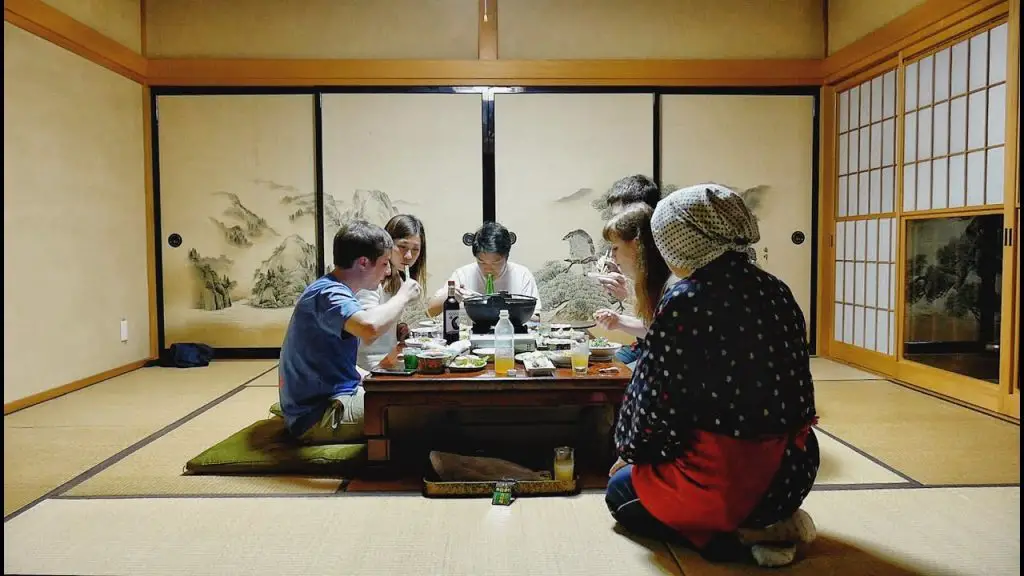
The host family will provide you with breakfast and dinner
Generally, homestay is an ideal alternative for independent leisure travelers of all ages, interns, gap year students, students living abroad and anyone seeking a real and genuine travel experience. Why not give it a shot?
2. Types of Japanese homestays
Now, the next question that may pop up inside your mind is “What homestay Japan options are there?”. We’ve helped you to classify and here are the three most popular types of homestay in Japan.
-
For tourists
One of the ways to gain deeper insight while traveling in Japan is to try a homestay. Whether it’s for a long vacation or just a weekend away, local homestays create a shortcut for you to experience a “real”, fascinating and diverse Japanese, something that night in a hotel can never provide. With recommendations from the host family, you can get lost in Tokyo’s winding backstreets, enjoy the slow pace of life in distant Hokkaido or explore places that tourists often never get to see.

Vacation homestay is the perfect choice for those who want to discover Japanese tranquil towns
Please note that there are weekend homestays that are only available from Friday to Sunday, so check it thoroughly before you hit the road.
-
For studying abroad program
You come to Japan to study or attend a cultural exchange program? Then sign up for Japanese homestay for brilliant experiences and to get help from the very first days. This option may also help you save a big budget in the long term.
The families rarely live in the city center so like most people in Japan you need to be prepared to commute. In the big cities the families often live in apartments but when you travel to rural areas, families often live in standalone houses.
If you do intend to a homestay, contact your school or organization as soon as possible so they can help you to find a host family.
-
Au pairs
Au pairs first originated from European countries then spread to Asia and become quite popular in Japan now. In this case, the host family will provide you with room, food, and pocket money while you commit to assist them in household chores, childcare, or farming work. In some situations, the Japanese host family will try to teach you Japanese in a natural setting instead of paying money.
3. Why go to a homestay?
Living with local families has become very popular among international visitors in recent years. Here are the pros and cons of homestay for you to consider next time you travel:
3.1. Pros
- Enjoy the best of Japanese culture and lifestyle
The most amazing destinations are sometimes hidden from the map and you really need a local guide if you want to explore that when traveling. I’d say there’s no better way to enjoy the “real” Japan than staying with local people. Not only could you find a neighborhood, or quaint village yet to feature on the tourist map, but you’ll learn about local customs and traditions, from eating habits to family routines. And if you’re lucky enough, you’ll have a chance to try the best Japanese homemade miso soup that tastes more uniquely than any restaurant.
- Be warmly welcomed
Japanese people are some of the kindest individuals in the world. They love meeting new people and showing you to Japanese vibrant culture. Believe me, homestays may be less polished than hotels but are much more welcoming!
When the time passes, you will have a network of amazing people and that’s also a good reason for returning. Japan is also one of the safest countries in the world, making it the perfect opportunity to live with locals.
- Boost your language
As you may know, the Japanese don’t speak much English. Hanging out with a resident means that you’ve got a natural environment to practice your language skills and you’re forced to speak Japanese. This is a great chance to have your speaking mistakes fixed and talk more like a native.
Don’t hesitate to ask because hosts will be happy to support you as much as possible when you learn.
- Save cost
Japan has a reputation for its high cost of living. To make your trip more affordable, homestay is a good alternative for hotels and other accommodation styles. The table below will show you a homestay costs compared to apartments, hotels, and dormitories.
| Price
(yen/per month) |
Homestay | Apartment | Hotel | Dormitory |
| Rental Fee | 85000 | 100000 | 150000 | 90000 |
| Service charge | 00 | 20000 | 10000 | 20000 |
| Food | Lunch only 10000 | 30000 | 40000 | 30000 |
| Utilities | 00 | 10000 | 00 | 10000 |
| Total | 95000 | 160000 | 190000 | 150000 |
3.2. Cons
- Less privacy
You will certainly have your own room (unless you choose to share) but you’re gonna share the rest of the house (including bathroom, kitchens, internet, etc.) with your host family so there will be some moments that you feel a bit uncomfortable.
- Less freedom
It’s clear that you will have less freedom as you have to follow the family curfew all the time. You may not skip meals whenever you want or invite friends to house for a night party. It will be difficult to stray from your habit, but you’d better prepare if you choose to live with a host family.
4. How to proceed?
4.1. Choose a homestay
The very first step you need to take is searching for a homestay that fits your standards. You can research online through homestay company websites or ask for help from your school. If you choose the service of a homestay company, they’ll be in charge of matching you with host families and take care of all the paperwork. Of course, a registration fee will be added up to the total prices.
You will need to take into consideration the homestay’s location, physical conditions, prices, neighborhood, etc. Note that the houses cannot be perfect as you see online so read the reviews or comments carefully!
4.2. Fill in the application form
After deciding where to stay, you contact the housing company or host family to fill in the application form. The form will include your basic personal information, the purpose of visiting, contact, and place that you would like to stay. No other documents are required at this step.
When you apply, it is recommended to register as much in advance as possible to make sure that the host family is still available. The deadline for the registration form is one month before your arrival in Japan.
4.3. Interview
You and your host family discuss further the description of the family, neighborhood, stations, etc, and a set of ground rules to reduce troubles while living together. Find out what’s okay and not okay, for example, is it okay to come home late? Will it is fine if you invite friends to the house? etc.
When both sides come to an agreement on the condition of the stay, you sign in the contract and proceed with payment.
4.4. Proceed payment
At this point, the company will send you a request for payment for the registration fee. In most cases, payment is made online by credit card. Please note that the registration fee is not refundable for any cancelation reasons.
5. Tips to live in a Japanese homestay
5.1. Be well-mannered
Japanese families may have a curfew or certain expectations about your behavior. Ask about what is expected and respect these rules.
- Take off your shoes indoors: Japanese people never wear shoes inside their homes. Instead, they use slippers or go barefoot.
- Don’t shower in the bathtub: In Japan, a bathtub is only used for soaking. So you wash your body thoroughly before you enter the tub because the rest of your family will be washing in the same water after you!
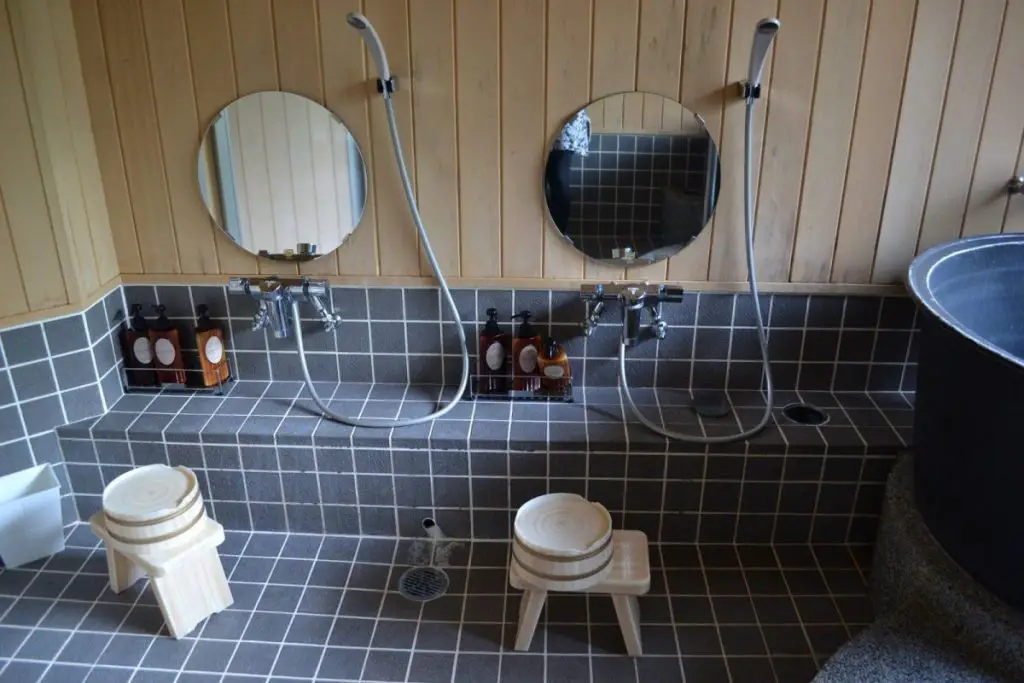
There is a small stool to sit down while washing and also a rain shower overhead for western style showering
- Don’t forget your table manners: There is a vast etiquette you need to stick to while eating. For example, you wait for everyone to be served before starting or wash your hands by the small wet cloth given to you, then fold it and set aside.
If you just can’t remember all the rules and do it properly, then try to be as polite as possible.
- Learn How to Bow: It’s quite complicated to bow properly so Japanese people usually do not expect foreigners to make it right. But a little effort goes a long way. A general tip is to follow the lead of the person bowing to you, and the only bow once.
5.2. Act as part of the family
Japanese families don’t take the responsibility of a homestay lightly and a Japanese homestay experience is totally different to staying in a hotel. They may take you around town, to a nice restaurant or even hiking outside the city, or try to improve your Japanese.
So spend time with the family, listen to what they share and act like you belong. Don’t just stay in your room all the time. Offer to help out with daily chores like washing the dishes or preparing meals. Be flexible and never pass up any opportunity they offer you to experience Japan and its culture.
5.3. Get used to Japanese house interior
Japanese houses are somewhat different from your own. You will see tiny Japanese rooms with sliding doors (to save space) and folded mattress or futon instead of an actual bed. If you’re lucky enough to sleep in a traditional Japanese futon on a tatami floor, remember to fold it everyday to avoid mold.
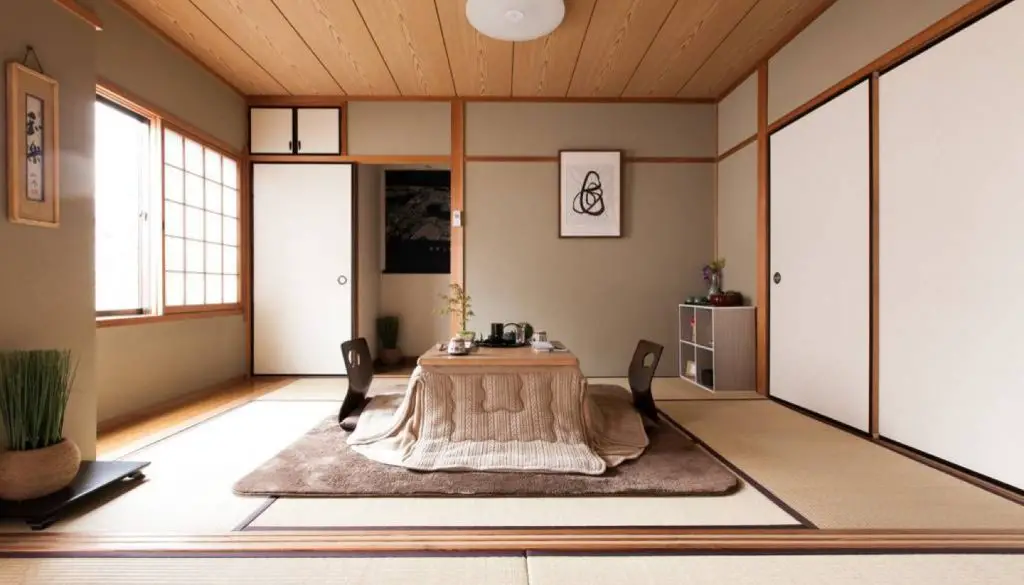
Japanese use mats instead of sofa
Their toilets are so amazing with high technology. There will be a bunch of buttons which bring you the best experience. Take my advice and give each button a try for a nice little surprise!
5.4. Learn some Japanese
Get to know about Japanese culture and pick up some basic Japanese before arriving, you’re gonna surprise your host and make a good impression!
Below are some frequently used phrases you should know:
Hai- yes
Lie- no
Konnichiwa – Hello!
Yoroshiku onegai shimasu! – Nice to meet you!
Sumimasen- Excuse me/sorry
Gomen nasai- I’m sorry
Arigato gozaimasu- Thank you!
Ohayo gozaimasu – Good morning
Oyasuminasai – Good night
Tadaima! – I’m back!
Okaerinasai! – Welcome home!
5.5. Don’t forget a gift
Even if you pay your host for the experience of a homestay, make sure you don’t come with empty hands. It doesn’t need to be something luxurious, an interesting token from your home country would be the best. And don’t forget to wrap it nicely!
SEE MORE:
6. Frequently asked questions
- Will I be the only foreigner in the family?
You can stipulate this while you’re interviewing with the host family.
2. Will my host family be close to my school?
As we’ve mentioned before, Japanese cities like Tokyo, Yokohama, Kyoto and Osaka are big cities so you need to commute to school. The travel time is around 30 minutes.
3. How old do I need to be to live with a host family?
To be legal to homestay in Japan, you must be at least 18 years of age. If you are less than 18, you will need to provide a letter of commitment stated by your parents.
4. How soon do I have to register?
It is suggested that you proceed to find a homestay at the same time you are doing your school registration.
5. What if problems arise and I want to move out?
In case of any misunderstanding, contact the homestay company to get support. They may try to fix the situation or find you a new family.
Please note that if you don’t follow the requirements of your host family, they can also ask to find a new family for you!
6. What is the maximum length of stay?
The maximum length is 6 months for normal programs and one year for Au pairs. If you want to stay longer, you have to pay the registration fee once more.
Conclusion
Homestay in Japan is a very different type of accommodation but possibly one of the best ways to get a fully immersive experience of Japan and the Japanese lifestyle.
If you’re ever in Japan, go to a homestay. You definitely won’t regret it.




